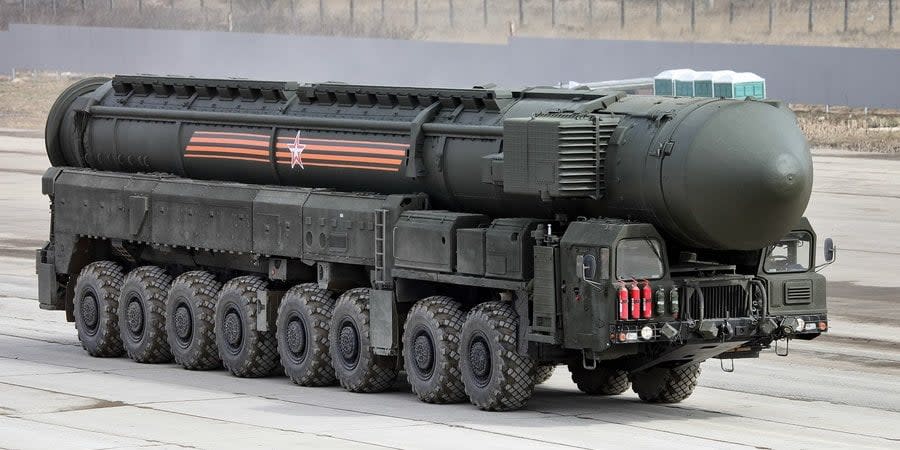Russian ICBM fails, goes off course in test, Ukrainian intelligence says

Russia has conducted unsuccessful tests of the RS-24 Yars intercontinental ballistic missile (ICBM), a core component of Russia's land-based strategic nuclear forces, the Ukrainian Defense Ministry’s Main Intelligence Directorate or HUR reported on Telegram on Nov. 4.
The failed Nov. 1 missile launch from the Plesetsk Cosmodrome to a testing range in Kamchatka was carried out by the 33rd Missile Army of the Russian Federation’s Strategic Missile Forces. The missile deviated from its course, as it did during previous tests of Russia's strategic nuclear forces on Oct. 25.
On the same day, Russia also conducted a test launch of an RSM-56 Bulava ballistic missile from a Borei-class nuclear-powered submarine. That test also failed.
The HUR report indicates that Russia is also facing "serious problems" with the RS-28 Sarmat liquid-fueled, MIRV-equipped super-heavy intercontinental ballistic missile, which is one of the key projects in the declared process of "modernizing" Russia's strategic nuclear forces.
Read also: Moscow revoking ratification of nuclear-test-ban treaty – Russian Duma speaker
Russia has been developing the Sarmat missile since 2009. According to Moscow's plans, it was supposed to be commissioned in 2018, but the date was constantly postponed until September 2023, after the first and only full-scale test was conducted in April.
"In fact, Sarmat is an unfinished, imperfect, raw missile," the HUR said, comparing the Ukrainian-made RS-20 Voyevoda ICBM and the Sarmat missile, which it said was no better in terms of design, payload, and methods of overcoming missile defenses.
Russia also faces difficulties in improving the air component of its strategic nuclear forces, as part of the modernization of Soviet-made Tu-160 and Tu-95MS bombers. Current capacity allows only 1-2 aircraft to be overhauled per year.
The delivery of new Tu-160M2 strategic bombers, originally scheduled for 2023, has been postponed due to the failure to resume production of the new NK-32 engines, HUR claims, saying that Russia's challenges are "direct consequences of the civilized world's sanctions against Moscow" for its war in Ukraine and its inability to produce the necessary components to replace imports.
Russian dictator Vladimir Putin signed a law withdrawing Russia's ratification of the global Comprehensive Nuclear-Test-Ban Treaty (CTBT), a move condemned by the organization that promotes adherence to the landmark arms control pact.
The EU's High Representative for Foreign Affairs and Security Policy, Josep Borrell, said the Kremlin's decision threatens the entire international architecture of nuclear non-proliferation and arms control and poses a threat to global stability.
Read also: Putin’s nuclear training a show, not a threat, says HUR
"Russia's action will only serve to set back confidence in the international arms control regime," U.S. Secretary of State Antony Blinken said in a statement.
The CTBT was opened for signature in 1996 and has since been signed by 187 countries, and ratified by 178, including three nuclear powers: France, Russia, and the United Kingdom.
For the test ban to enter into force, it requires ratification by 44 states who participated in negotiating the agreement and who had nuclear power or research reactors at the time. Of that 44, eight countries have yet to ratify the ban: China, North Korea, Egypt, India, Iran, Israel, Pakistan, and the United States.
We’re bringing the voice of Ukraine to the world. Support us with a one-time donation, or become a Patron!
Read the original article on The New Voice of Ukraine

